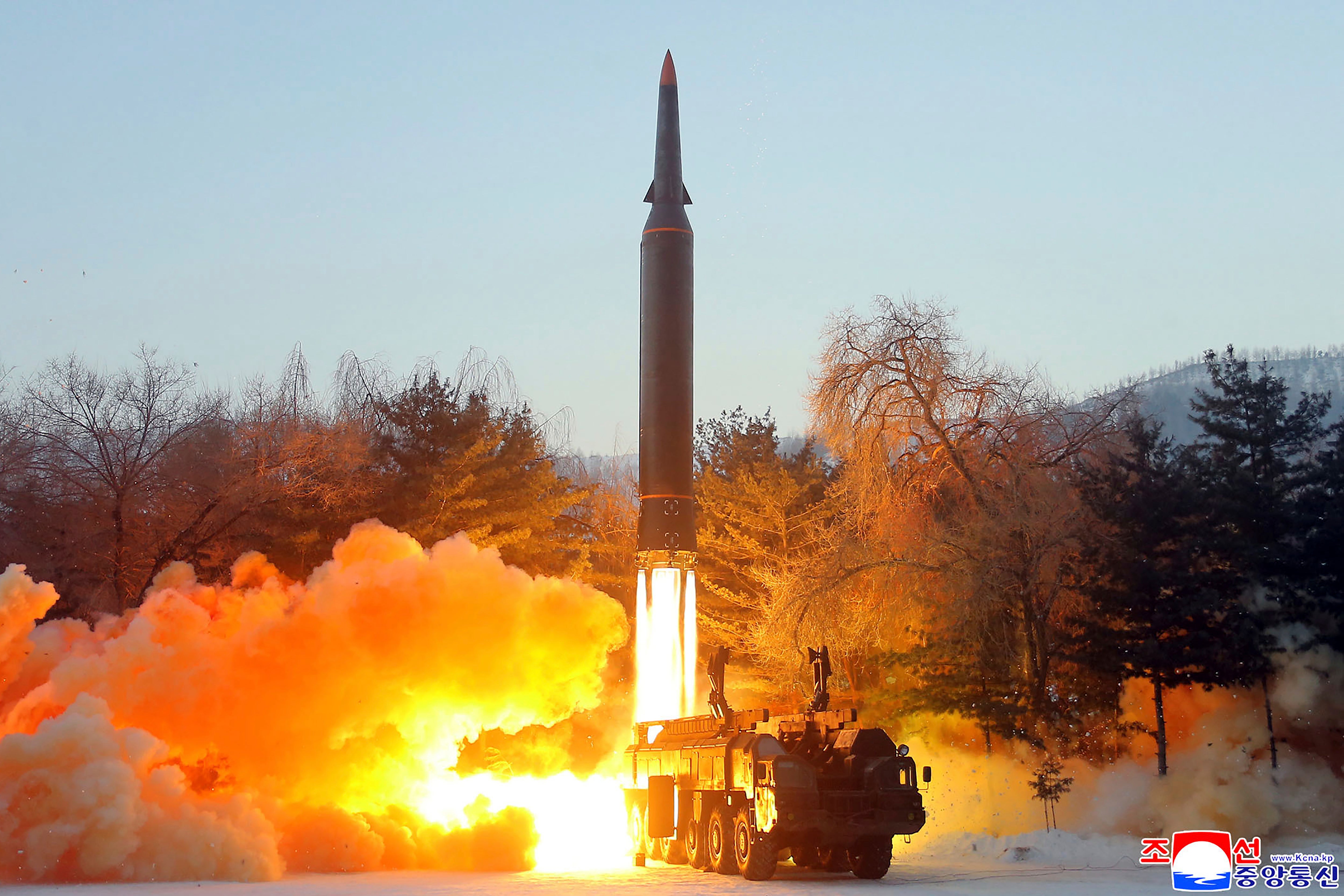S. Korea disputes North's claim of hypersonic missile test
South Korea has dismissed North Korea’s claim to have recently launched a hypersonic missile as an exaggeration, saying it was a normal ballistic missile that could be intercepted

Your support helps us to tell the story
From reproductive rights to climate change to Big Tech, The Independent is on the ground when the story is developing. Whether it's investigating the financials of Elon Musk's pro-Trump PAC or producing our latest documentary, 'The A Word', which shines a light on the American women fighting for reproductive rights, we know how important it is to parse out the facts from the messaging.
At such a critical moment in US history, we need reporters on the ground. Your donation allows us to keep sending journalists to speak to both sides of the story.
The Independent is trusted by Americans across the entire political spectrum. And unlike many other quality news outlets, we choose not to lock Americans out of our reporting and analysis with paywalls. We believe quality journalism should be available to everyone, paid for by those who can afford it.
Your support makes all the difference.South Korea dismissed North Korea’s claim to have recently launched a hypersonic missile as an exaggeration on Friday, saying it was a normal ballistic missile that could be intercepted.
The assessment is certain to anger North Korea South Korea has previously avoided publicly disputing North Korea's weapons tests, apparently so as not to aggravate relations.
South Korea’s Defense Ministry said it believes North Korea hasn’t acquired the technologies needed to launch a hypersonic weapon.
It said in a report that what North Korea fired on Wednesday was a type of ballistic missile that was displayed in October during a weapons exhibition in Pyongyang its capital. It said South Korean and U.S. forces could shoot it down.
The ministry said North Korea’s claim that the weapon flew 700 kilometers (435 miles) and maneuvered laterally appeared to be an exaggeration. Ministry officials said the claim was likely aimed at a domestic audience to boost public confidence in its missile program.
North Korean leader Kim Jong Un has been calling for greater unity and improved weapons development in the face of pandemic-related difficulties. He has refused to return to disarmament talks with Washington and Seoul while maintaining tough anti-virus restrictions.
Wednesday's launch was North Korea's second claimed hypersonic missile test. Its state media said the missile made a 120-kilometer (75-mile) lateral movement before precisely hitting a target 700 kilometers away, and that the test confirmed the weapon's flight control and stability.
Hypersonic weapons, which fly at speeds in excess of Mach 5, or five times the speed of sound, could pose a crucial challenge to missile defense systems because of their speed and maneuverability. The weapon was on a wish-list of sophisticated military assets that Kim unveiled early last year along with multi-warhead missiles, spy satellites, solid-fueled long-range missiles and underwater-launched nuclear missiles.
In September, North Korea said it had conducted its first flight test of a hypersonic missile.
The South Korean Defense Ministry report said Wednesday’s launch didn't show evidence of any technological progress since the September test. South Korea’s military earlier said the missile tested in September was at an early stage of development and that the country would need considerable time to deploy it operationally.
The ministry said South Korean missiles are superior to North Korea’s in terms of the destructive power of their warheads and precision guidance.
Photos show that the upper parts of the missiles launched in September and this week have different shapes. That suggests that North Korea might have tested two versions of warheads for a missile still under development or is actually developing two different types of missiles, according to Lee Choon Geun, honorary research fellow at South Korea’s Science and Technology Policy Institute.
South Korea’s current liberal government has been pushing hard to improve ties with North Korea. But its appeasement policy has made little progress since a broader nuclear diplomacy between Pyongyang and Washington collapsed in 2019. South Korea is to elect a new president in March.